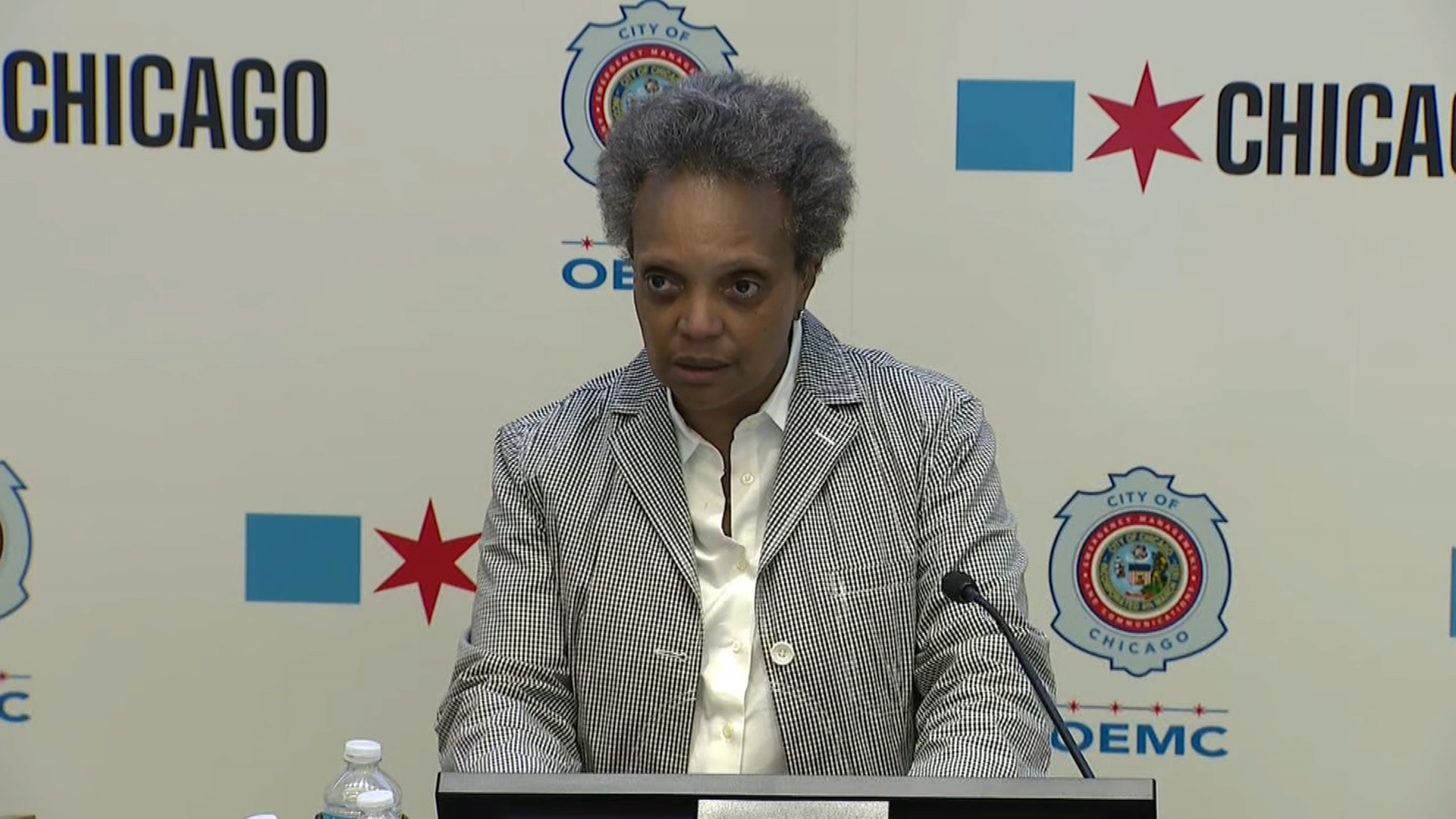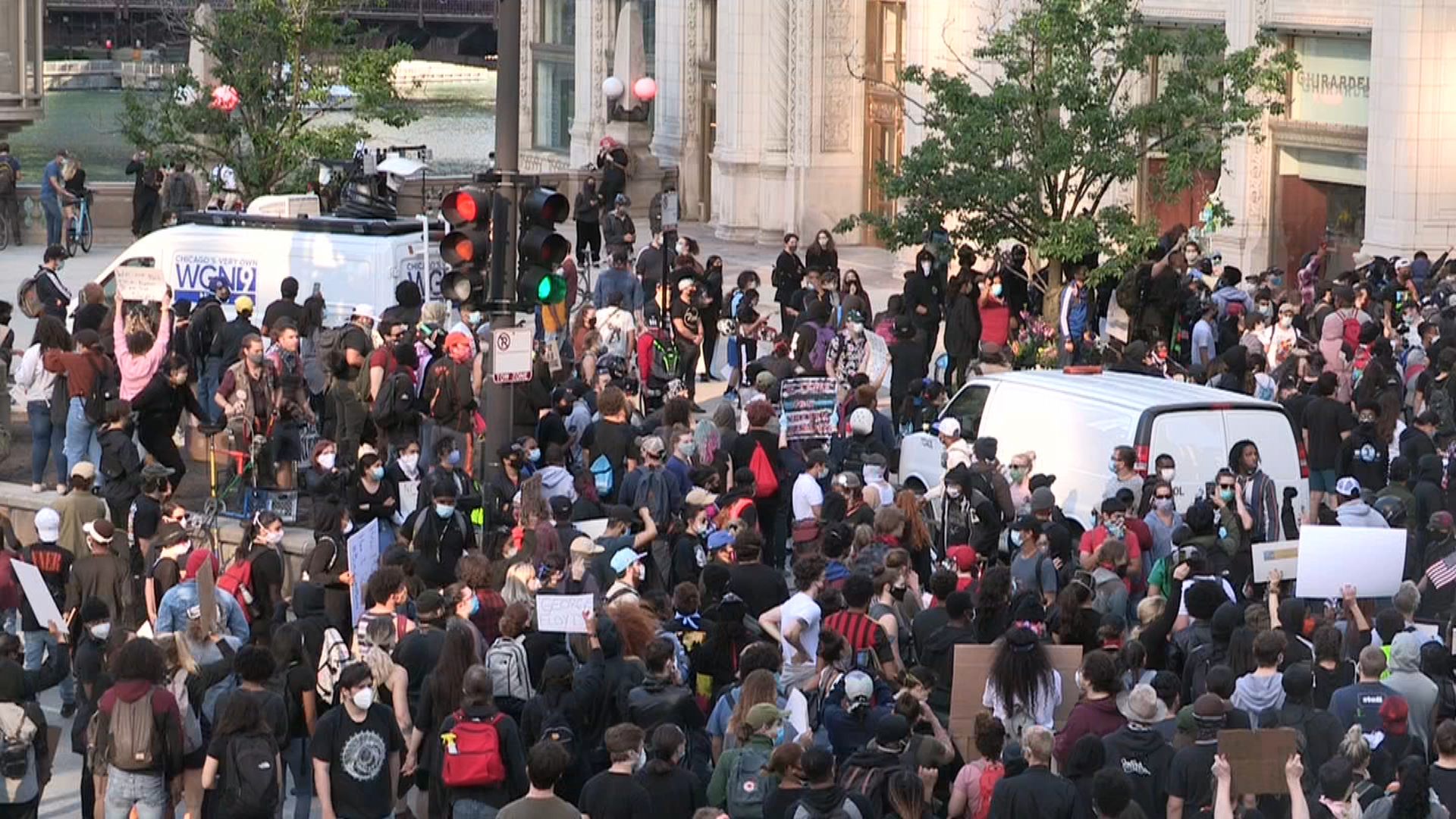Chicago Mayor Lori Lightfoot called for the city to join her in a moment of silence Sunday evening after protests over the death of George Floyd.
The moment of silence is set to take place at 5 p.m.
"I know in my heart, in my soul, that we will be able to learn from this moment and move forward together," Lightfoot said while addressing overnight unrest that left much of the city's downtown damaged and vandalized.
In the same address, Lightfoot announced that members of the National Guard have been called assist the city's police department "in order to not have a repeat of what we saw last night."
Feeling out of the loop? We'll catch you up on the Chicago news you need to know. Sign up for the weekly Chicago Catch-Up newsletter here.
The move is in addition to a citywide curfew that remains in effect daily from 9 p.m. to 6 a.m. "until further notice."
"This is a time for us to unite," Lightfoot said. "We have to turn our pain into purpose in order to get through this moment together."
Several Chicago streets and transportation routes will be shut down Sunday in preparation for additional protests after dozens of buildings were damaged, vehicles burned and a curfew put in place.
Multiple routes to the Central Business District and Loop will be "temporarily reduced" Sunday, leaving only employees of area businesses and those who live there or work in essential activities allowed inside the boundaries.
In addition, several Chicago Transit Authority routes have been suspended in the area "for public safety reasons" as more protests are expected Sunday.
"Last night was not a protest," Chicago Police Supt. David Brown said. "The people that came downtown were not there to exercise their First Amendment rights. These criminals arrived in the Central Business District prepared to damage property and steal."
Much of the city woke to a stream of damage that marked the path where protesters marched in downtown Chicago Saturday evening, leaving behind broken windows, graffiti and the shattered remains of some of the city's most popular shops.
See What Chicago, Michigan Avenue Looks Like After Night of Destruction Following Protests
Debris and shattered glass lined Michigan Avenue after thousands marched in the city to decry the death of George Floyd, a handcuffed black man who died after a Minneapolis police officer pressed his knee into his neck for several minutes.
Nearly every storefront on the popular strip saw some form of damage.
Several police cars were damaged, including at least one set on fire, as the first curfew began.
"To be clear, I've marched in a few protests in my day, but neither I nor anyone that I was with saw the need to bring weapons in order to lift up our voice and express our First Amendment rights," Lightfoot said Saturday evening.
Lightfoot condemned Floyd's death during a Saturday night news conference and defended the idea of demonstrating to honor him. But she added that a peaceful protest has “devolved into criminal conduct” and police will be aggressive with arrests for anyone caught damaging property.
“When you or anyone else behaves in this way, we all lose by giving the very same forces of oppression we are fighting against the false validation that they crave,” the mayor said.
Brown, who was out on the streets with city officers Saturday, said that while Floyd "did not deserve the treatment he received," those destroying property "are not representing the Floyd family in the right way."
"We will be taking you into custody when you destroy property...when you burn cars, when you break out windows," he said.
Still, even as officers lined city streets, the looting continued even into the morning hours Sunday as many residents came out to aid in clean-up effort.
Brown said dozens of officers were injured in clashes with protesters Saturday.
The demonstration came after Chicago officials, following Friday incidents that resulted in more than 100 arrests, asked that additional protests remain peaceful. Demonstrations are expected throughout the weekend over Floyd's death.
The violence in Chicago and many other cities was sparked by anger over over Floyd’s death in Minneapolis on Monday, which was captured on cellphone video. It led to the firing Tuesday of the four police officers who were arresting Floyd for suspicion of passing a counterfeit bill and to third-degree murder and manslaughter charges being filed Friday against the officer who used his knee to pin Floyd down for more than eight minutes, even as Floyd pleaded for air and went limp.



